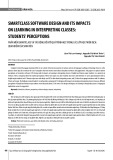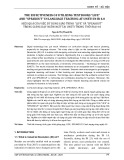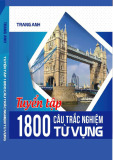
38
1 2 3
4
5
6 7
8
9
10 11
12
13 14
15 16 17 18
19
20
21
22
23 24
25
26
27
28 29
30
31
32
33 34
35

Test your knowledge with this quiz. Choose the best answer from the list of options. In
some cases, more than one option may be possible.
Politics and government 2
39
1. What is another name for an "interest group" (an industrial, commercial, professional, financial, etc,
group that tries to influence government policy?
(a) A pressure group (b) A lobby (c) A political party (d) The judiciary
2. Which of these things is a judge not allowed to do?
(a) Interpret government law (b) Decide if a law contravenes our human rights (c) Create or change a law by
the decisions they make in particular cases (d) Challenge the legality of a law passed by Parliament
3. Judgements in law are usually based on previous similar cases What must a judge do, however, if
there has not been a similar case to the one he / she is judging?
(a) Make his / her own judgement (b) Ask Parliament to make the judgement for him / her (c) Apply to the
Queen for a judgement (d) Cancel the case
4. Who appoints judges to their post?
(a) The Chancellor of the Exchequer (b) The Queen (c) The Lord Chancellor (d) The Prime Minister
(e) The Cabinet (f) The House of Lords
5. What are the main criticisms concerning the current judiciary?
(a) The selection process for judges is not 'transparent' enough to the public (b) Judges are not representative
of the general community (c) There are not enough female judges (d) There are not enough judges from
ethnic minorities (e) Judges are usually only selected from a particular section of society (ie, upper-middle class)
(f) Many judges are 'out of touch' with the people they judge
6. Most counties and administrative areas have their own police force The largest police force in the UK
is based at New Scotland Yard in London. What is its name?
(a) The Thames Valley Police (b) The Special Constabulary (c) The Thought Police (d) The Metropolitan Police
(e) The Chief Constable
7. Who 'controls' this police force and tells it what to do?
(a) The Government (b) Local councillors (c) Local magistrates (d) The Home Secretary (e) The Queen (f) The
Prime Minister
8. Who should you contact if you have a complaint against the police?
(a) The IPCC (b) The RSPCA (c) The NSPCC (d) The DVLA (e) The C of E
9. What do we call the independent managers and administrators who carry out government policy?
(a) The Department of Social Security (b)The Family Planning Association (c) Citizens'Advice (d) The Civil
Service
10. What are the two key features of this organisation?
(a) Professionalism (b) Political allegiance to the ruling political party (c) The ability to change government
policy if it disagrees with it (d) Political neutrality (e) Choosing which aspects of government policy it wants to
put into practice
11. What happens to this organisation if a new government is elected?
(a) It must put the new government's policies into practice (b) It is disbanded, and new managers and
administrators are chosen (c) The managers and administrators continue working with the previous
government for up to five years and are then 'retired'
12. Individual areas in the UK are administered by a system of local government, called councils. What
are the main types of council?
(a) County council (b) District council (c) Borough council (d) City council (e) Metropolitan council
13. What is another name commonly used for local government?
(a) Local authorities (b) Local commands (c) Local controllers (d) Local dictators

14. What sort of community services do councils provide?
(a) Education (b) Local / regional planning (c) Public transport (d) Road maintenance (e) Recycling (f) Refuse
collection (g) Libraries (h) Housing and accommodation (i) The Fire Service (j) Social services
15. What do we call a member of a local council?
(a) A counsellor (b) A councillor (c) A counciller (d) A councilor
16. How does somebody become a member of a local council?
(a) They must apply for the post, like any other job (b) They must be elected in local elections (c) They are
appointed by Parliament in London (d) They must make a financial donation to the council: the biggest
donation "wins"
17. What are "mandatory services"?
(a) Local government services that must be provided because the central government says they must be
provided (b) Local services that a local government can provide if it wants to and has the money to do so
(c) Local services that are decided by central government, but that local government can refuse to provide
(d) Local services that must be provided because the people who live in that area demand them
18. Who provides the money for local government?
(a) The government (through taxes) (b) Local businesses (through voluntary donations) (c) Local people
(through council tax) (d) The European Parliament (through a central European funding system)
19. Who is eligible to vote in local and national elections?
(a) Men over 18 and women over 21 (b) Men and women over 16 (c) Men and women over 18 (d) Men and
women over 21 (e) Men over 18, and women over 18 if they are married (f) Men only
20. If you are a permanent resident of the UK, but are not a UK citizen, which two rights do you not
have?
(a) A general right to vote (b) The right to free medical treatment on the NHS (c) The right to claim social
security if you are unemployed (d) The right to get married to a UK citizen (e) The right to hold a British
passport (f) Employment rights such as paid holidays and the minimum wage (g) The right to be represented
by a Member of Parliament
21. How much money do you need to deposit if you want to stand for political office in the UK?
(a) £5000 for MP's and members of the Scottish Parliament and Welsh and Northern Ireland Assemblies, and
£500 for Members of the European Parliament (b) £500 for MPs and members of the Scottish Parliament and
Welsh and Northern Ireland Assemblies, and £5000 for Members of the European Parliament (c) 10% of your
annual income (d) Nothing, if you are unemployed (e) Nothing, but you are not allowed to vote for yourself
22. When you make a deposit to stand for political office, what percentage of the vote must you win
to get your deposit back?
(a) You don't need to win any votes (b) At least 5% (c) At least 10% (d) At least 20% (e) At least 25%
23. If you want to contact your Member of Parliament (MP), how should you do it?
(a) By writing to their constituency office (b) By writing to them at their office in the House of Commons
(c) By phoning their constituency office (d) By phoning their office in the House of Commons (e) At regular
'surgeries' where the MP will be present to answer your questions (f) By email, through the website
www.writetothem.com
24. In recent years, has the number of people voting in local and national elections:
(a) fallen? (b) risen? (c) stayed the same?
40

This text, which is about devolving power in UK politics, contains 50 spelling errors or
wrong words. Can you identify and correct them all?
Politics and government 3
41
The process of taking power from a central autority or goverment and giving it to smaller, more
local regions is called devalution. This began in the UK in 1997, with the result that since 1999
there has been an Assembly in Whales and a Parliament in Scottland.
The Welsh Assembly and the Scottish Parliament have control over many local issues, but can only
debite the policy and laws governing general taxattion, social seccurity, defense and foreign
affaires (which are decided by central government in London).
The Scottish Parliament is based in Edingburgh (Scotland's principle city), and is funded by a grunt
from the UK government. Scotland has had some limited autonamy from London for quite a long
time, but the decision to begin creating a seperate Parliament did not happen until a national
refferendum in 1997. Unlike the Welsh Assembly (see the paragraph below), the Scottish
Parliament can make its own laws (with exceptions such as those listed in the paragraph above),
and even has some powers over national income tax rats. Also, unlike the Welsh Assembly and
the UK Parliament, members (known as MSPs) are elected by a type of preportional
reprasentation.
The Welsh Assembly is based in Cadiff (the Welsh capitol). Assembly members are chosen in
ellections which are held every four years. It makes its own decisions on many local issues and
policys such as edducation, health services and the enviroment. Although the Assembly cannot
make laws for Wales, it is able to prepose laws to central UK Parliament in Westminister, who can
then discuss them and possibly create legislateion based on those preposals.
The Northern Ireland Assembly, based at Stormont in Bellfast, was formed after the two main
organiseations responsible for terrorist activity in the region (the IRA – the Irish Republiccan Army
– and the UDA – the Ulster Defence Asociation) agreed to cease armed hostilities. In the Good
Friday Agreement of 1998, the main political wings of these groups agreed to work together with
other political parties in a power-shareing agreement which resulted in the formation of the
Assembly. Its powers are similar to the Welsh Assembly. However, it can be (and occasionally has
been) suspected by the central UK government if the political leaders fail to work together, or if
they act against the interests of the citisens of Northern Ireland.
For most people in the UK, contact and dealings with the government are through organisations
known as non-deportmental public bodies. These include: spending agencies such as regional
healthy authorities and higher education founding counsels; trading bodies to raise revenu, such
as National Shavings and Investments and the Forestry Commision; quasi-judical and prosecuting
bodies, such as the Monopelies and Mergers Commission, the Crown Prosecution Service and the
IPCC (see Politics and Government 2 on page 39); Statutory Advisery Bodies to Ministers, such as
the Health and Safety Commission, the Equal Opportunnities Commission and the Commission
for Racist Equality; development agencies, such as the Highlands and Icelands Development Bored
in Scotland, and the Welsh Development Agency.

Pubs are an important institution in the UK. They are places where we go to relax, meet our
friends, and of course drink. Many pubs also serve food. In many smaller towns and villages
they are a central feature of the community and its activities.
Test (and develop) your knowledge of pubs with this quiz.
42
In the pub
1. Pub is a shortened form of which two words?
2. Pubs must be licensed. What does this mean?
3. Who is the landlord or landlady of a pub?
4. Some pubs have the words free house on a sign outside. What does this mean?
5. How old must you be to buy an alcoholic drink in a pub?
6. Are children under 16 allowed to go into pubs?
7. Can you smoke in pubs?
8. In a pub, do you sit at your table to wait to be served, or do you go directly to the bar?
9. What are bitter, lager and stout? What is cider? What are spirits?
10. What measurements are bitter, lager, stout and cider sold in?
11. You order a single whisky for yourself and a double brandy for your friend: how much (in millilitres)
is each drink worth in quantity?
12. Can you buy non-alcoholic drinks in a pub?
13. What are you doing if you are buying a round?
14. You are in the pub with a large group of friends, and one of them suggests starting a kitty. What
does he / she want to do?
15. Do you pay for drinks as you buy them, or do you pay for everything you have bought when you
leave the pub?
16. You ask the bar person if you can start a tab. What do you want to do?
17. Once you have bought a drink, is there a time limit within which you have to drink it?
18. Is it normal to tip the people working behind the bar?
19. British people consider it very important to queue (for example, in a shop, at the bus stop, etc). Do
they do this in a pub?
20. You are standing at the bar to buy a drink. The bar is very busy. What should you do to get the bar
person's attention?
21. If you accidentally spill someone's drink, what should you do?
22. Is it considered normal or acceptable in a pub to share a table with people you do not know?
23. Is it considered normal or acceptable to start a conversation with a stranger in a pub?
24. Another (male) customer asks you if you know where the gents are. What does he want?
25. What is pub grub? What are bar snacks?
26. Gastropubs are becoming increasingly popular in the UK. What are they?
27. You are enjoying a drink when the bar person shouts "Last orders!". What does he / she mean?
28. Ten minutes later, he / she shouts "Time please!", and / or rings a bell. What does this mean?
29. By law, at what time do most pubs have to stop serving alcohol?
30. Can you buy alcohol in a pub to take home with you?
31. What are darts, billiards, dominoes and skittles?
32. A bar person tells you that you are barred. What must you do?
33. Can a bar person refuse to serve you a drink without giving you a reason?
34. Binge drinking is becoming a big problem in the UK. What is this?


![Đề cương học phần Ứng dụng công nghệ thông tin trong giảng dạy ngoại ngữ (Application of Information Technology in Language Teaching) [Mới nhất]](https://cdn.tailieu.vn/images/document/thumbnail/2025/20250212/tuetuebinhan666/135x160/881739332468.jpg)









![Tài liệu Từ vựng tiếng Anh Trung cấp [mới nhất]](https://cdn.tailieu.vn/images/document/thumbnail/2025/20250913/nguyentuan250421@gmail.com/135x160/99491757910839.jpg)
![Tài liệu Từ vựng Tiếng Anh theo chủ đề [mới nhất]](https://cdn.tailieu.vn/images/document/thumbnail/2025/20250913/namdhuet@gmail.com/135x160/83251757753810.jpg)



![Tài liệu Từ vựng tiếng Anh cho bé [chuẩn nhất/mới nhất]](https://cdn.tailieu.vn/images/document/thumbnail/2025/20250731/huadaithesang2509@gmail.com/135x160/18631754013896.jpg)








